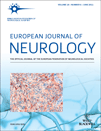SNCA, MAPT, and GSK3B in Parkinson disease: a gene–gene interaction study
Abstract
Background and purpose: Recent evidence suggests that variation in the SNCA, MAPT, and GSK3B genes interacts in affecting risk for Parkinson disease (PD). In the current study, we attempt to validate previously published findings, evaluating gene–gene interactions between SNCA, MAPT, and GSK3B in association with PD.
Methods: Three Caucasian PD patient–control series from the United States, Ireland, and Norway (combined n = 1020 patients and 1095 controls) were genotyped for SNCA rs356219, MAPT H1/H2-discriminating SNP rs1052553, and GSK3B rs334558 and rs6438552.
Results: Our findings indicate that as previously reported, the SNCA rs356219-G allele and MAPT rs1052553 (H1 haplotype) were both associated with an increased risk of PD, whilst contrary to previous reports, GSK3B variants were not. No pair-wise interaction was observed between SNCA, MAPT, and GSK3B; the risk effects of SNCA rs356219-G and MAPT rs1052553-H1 were seen in a similar manner across genotypes of other variants, with no evidence suggesting synergistic, antagonistic, or deferential effects.
Conclusions: In the Caucasian patient–control series examined, risk for PD was influenced by variation in SNCA and MAPT but not GSK3B. Additionally, those three genes did not interact in determining disease risk.




